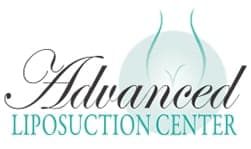Facial Procedures
What are the risks and potential complications associated with facial cosmetic procedures?
Facial cosmetic procedures, like any medical interventions, come with certain risks and potential complications. It’s important to be aware of these risks and discuss them thoroughly with your healthcare provider before undergoing any procedure. While complications vary depending on the specific treatment, some general risks associated with facial cosmetic procedures include:
1. Infection:
Any surgical procedure carries a risk of infection, which can usually be treated with antibiotics. Proper sterilization and hygiene are crucial in minimizing this risk.
2. Bleeding:
Some procedures can cause bleeding, especially during and immediately after the treatment. Excessive bleeding might require medical intervention.
3. Bruising and Swelling:
Bruising and swelling are common after many facial procedures, particularly injectables and surgeries. These side effects usually subside within a few days to weeks.
4. Scarring:
Surgical procedures can lead to scarring, although skilled surgeons minimize visible scarring through precise techniques. Scars might fade over time but could be permanent.
Are there any pre-treatment preparations or restrictions I should be aware of?
Yes, there are often pre-treatment preparations and restrictions associated with facial cosmetic procedures. Here are some general guidelines that individuals should be aware of before undergoing these treatments:
1. Consultation:
Schedule a consultation with a qualified healthcare provider or cosmetic surgeon. During this consultation, discuss your goals, medical history, allergies, medications, and any concerns you may have.
2. Medical History:
Provide a comprehensive medical history, including current medications, allergies, previous surgeries, and any existing health conditions. Certain medical conditions or medications might impact your eligibility for specific treatments.
3. Alcohol and Smoking:
Minimize alcohol consumption in the days leading up to the procedure, as alcohol can dehydrate the body. If you smoke, it’s advisable to quit or reduce smoking, as smoking can impair the healing process and increase the risk of complications.
How To Determine If Am A Good Candidate For Facial Surgery?
Whether you are a good candidate for facial surgery or not depends on several factors, here are some of them:
1. Overall Health: it’s important to have a healthy body. Conditions like heart diseases, diabetes, or autoimmune disorders may increase risks or interfere with healing.
2. Skin Condition: Your skin must be healthy for better results! However, if your skin is severely damaged, you will be recommend with alternatives.
3. Age: Fortunately there’s no age limit for a procedure like this, however older people will take longer recovery period, which can interfere with the results.
4. Realistic Expectations: Cosmetic surgeries aren’t magical processes, so you must understand their limitations, and have clear, achievable goals.
5. Non-smokers: Smoking can affect the healing process, which can lead to infections, undesired results or an extended healing period.
6. Good Post-Op Care: You must make sure you take care of yourself and follow all the post-procedure tips to ensure a healthy healing.
How To Prepare For A Cosmetic Focal Procedure To Make Sure To Get The Best Results?
Here are some tips you should follow to ensure desired results:
1. Talk With Your Surgeon: Discuss your goals, health history, and expectations. Feel free to ask any procedure related questions, understand the procedure well, potential risks and outcomes as well.
2. Do Not Smoke: You aren’t allowed to smoke after and before the surgery. Your doctor will recommend you to stop smoking at least 4-6 weeks before the surgery, so that your body can heal properly.
3. Follow People Instructions: You will be provided with people instructions such as skincare, diet and medications before the procedure.
4. Prepare Mentally: Be prepared about the recovery process, it can be painful and you will need to deal with incision healing swellings which can be annoying but it’s important for the final results.
Do Facial Procedures Help With Acne Scars Or Pigmentation Issues?
Yes, facial procedures are high effective for treating issues like acne scars or pigmentation, here are some common option you can opt:
1. Chemical Peels: This is a procedure that involves using acid to get rid of damaged outer skin layers, which greatly helps with mild to moderate acne scars and evens out the pigmentation as well. Furthermore, there are different types of peels that target various skin depths based on the patient’s needs.
2. Microneedling: Microneedling is a treatment that creates tiny punctures in your skin which causes collagen production, which later leads to smoothing of acne scars and improves your skin texture. This treatment is is also combined with PRP to boost the results.
3. Intense Pulsed Light: IPL is a non-invasive treatment that will use light to target pigmentation, this can include sunspots and post-inflammatory pigmentation from the acne. That’s why this treatment is considered a good option for pigmentation than deeper scars.
4. Fillers: Dermal fillers are pretty popular, and is used to deep or ice pack acne scars, this temporarily smooth outs the skin’s surface. This is another treatment that can be used in combination with other treatments to make sure you receive the best results.
How Long Results From Non-surgical Facial Procedures Last?
The duration of results of non-surgical facial procedures vary widely depending on the treatment, skin type, lifestyle and the treatment itself. However, here’s the general overview of few facial treatments:
1. Botox: Botox lasts for around 3 to 6 months. You will require regular maintenance to make muscles relaxed and minimize wrinkles.
2. Dermal fillers: If the fillers are Hyaluronic acid fillers then they can last from 6 to 18 months, while some might even last for 2 years.
3. Chemical Peels: This treatment usually last from few months to even a year.
